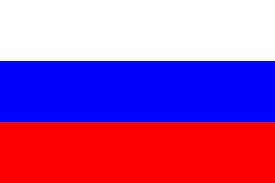Russia Online Poker Legalization to be Reconsidered
Russian legislators will be revisiting the topic of online poker legalization in an attempt to generate incremental tax revenue, according to recent reports in major Russian news outlets. Updates provided by Russian news agency RAPSI and the Moscow Times indicate that one of the largest European countries will be considering re-legalization efforts as early as this month.
Specifically, Russia’s First Deputy Prime Minister, Igor Shuvalov, has issued an order to the government’s Finance, Economic Development and Justice Ministries to research the possibilities of online-poker legalization, which in this form would mean formal approval and regulatory oversight (possibly in the form of licensing) by the Russian government.
Such a regulatory framework would be expected to generate as much as five billion rubles (nearly USD $150 million) in new tax revenue on an annual basis.
Online poker has endured a rocky history in Russia over the past decade, though even as a “grey market” country, it ranks among European leaders in total players participating on major online sites. Poker was formally recognized as a sport in Russia in 2007, a designation offering legal protection, but that designation was reversed in 2009 amid a major crackdown on many forms of gambling undertaken by Russia’s central government.
 Hundreds of small underground casinos and gambling rooms were shuttered as a result of the 2009 crackdown. A sizable percentage of the underground casinos forced to close were officially licensed poker rooms that actually operated as small casinos offering a full range of games.
Hundreds of small underground casinos and gambling rooms were shuttered as a result of the 2009 crackdown. A sizable percentage of the underground casinos forced to close were officially licensed poker rooms that actually operated as small casinos offering a full range of games.
As an alternative, Russian legislators created four small “gambling zones” where such activity was expressly legal, all well removed from the country’s most popular areas. The four territories are “Siberian Coin” (Altay region), “Yantarnaya” (Kaliningrad region), “Azov-city” (near Rostov) and “Primorie.” Separately, Russian legislators are also considering the creation of two new gambling regions, in the Crimea and around the resort two on Sochi, which just recently hosted the 2014 Winter Olympics and now boasts large underused facilities.
The possible legalization of online poker would likely force many European gray market operators to secure official Russian licensing. Most major worldwide sites allow access to Russian players, including market leader PokerStars. Russian players have also enjoyed continuing success in international poker competitions, such as the Stars-sponsored European Poker Tour (which once included a Russian stop), and, of course, the World Series of Poker.
PokerStars even sponsored the short-lived Russian Poker Tour, which was abandoned after the legal restrictions imposed in 2009.
The flip side is that the likeliest scenario for Russian recognition and licensing of online poker is a single-country form of licensing and partitioning of players, similar to that which already exists in fellow European countries Italy, Spain and France. Those three countries have discovered, belatedly, that walling off their players has had a negative effect on player liquidity and total generated tax revenue.
The possible balkanization of Russia’s online poker players, if indeed approved by that country’s officials, would also remove one of the larger national player pools currently participating on “open” international sites. A late 2011 report issued via the University of Nevada-Las Vegas ranked Russia behind only Germany in terms of online-poker participation, and ahead of such other stalwarts as Canada, France and Great Britain.
No deadline has been set for any new regulations to be enacted regarding Russia online poker. A preliminary report is expected to be provided to Shuvalov’s office later this month.




















COMMENTS